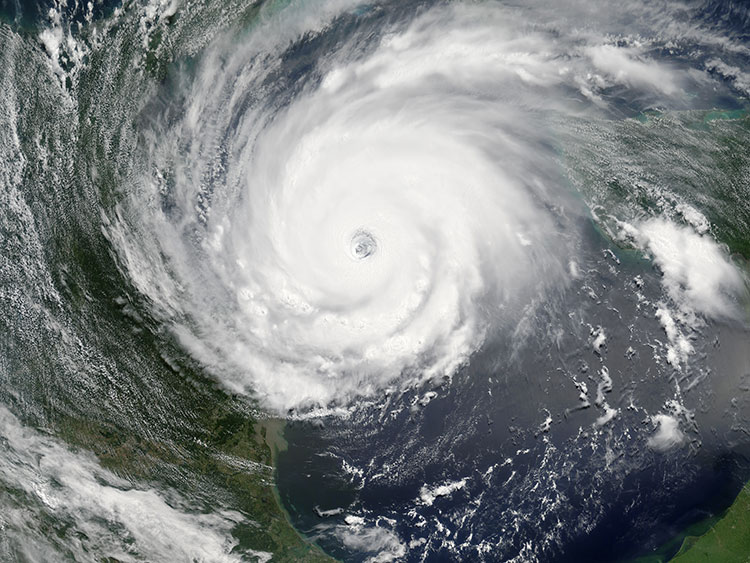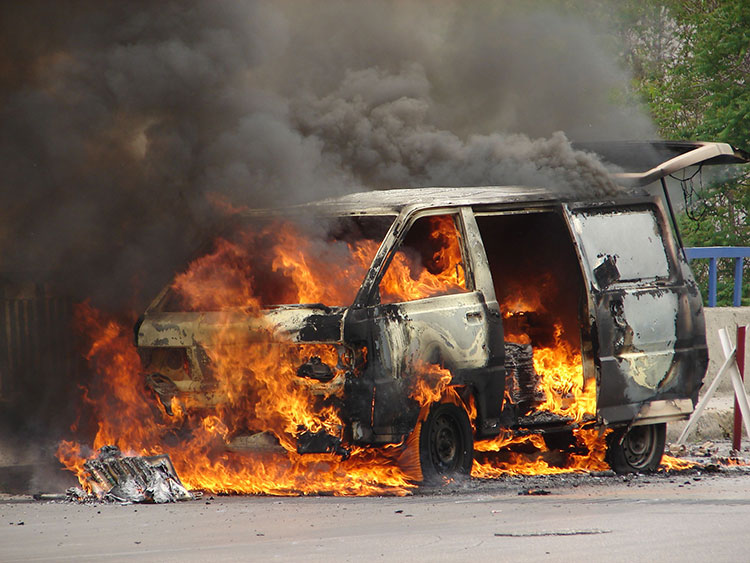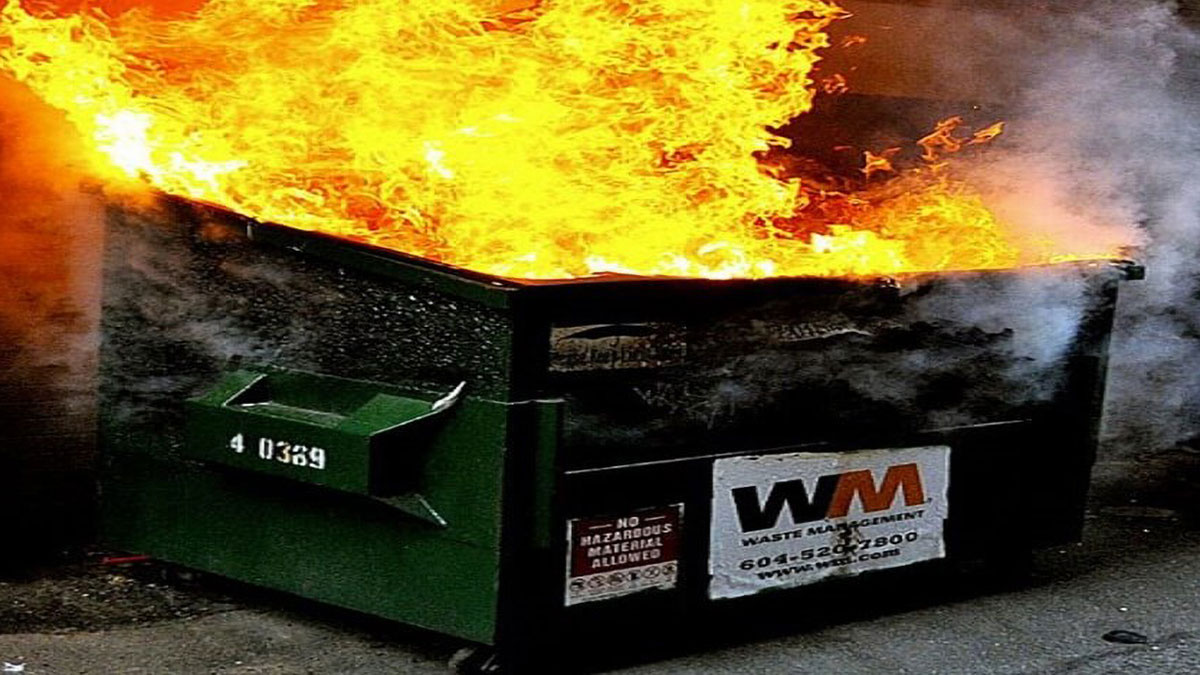46.1K
Every new year comes with a set of new predictions. Times are always changing, and each year I like to come up with my own set of possible SHTF situations. This year’s list is an adaptation of what I predicted in 2024. Fortunately, they didn’t come to fruition, but those predictions largely remain here, because they are still possibilities.
There are plenty of reasons to prep in 2024. The reasons seem to keep growing every year, and it’s why SHTF preppin g seems to gain more attention and interest with each passing year. There seems to be a collective… unease about the future. It’s hard to put our fingers on exactly what it is that feels off, but it’s something… maybe it’s everything. But we’re all feeling it.
Hold on. Let’s back up for a second…
What is a SHTF Situation?
The acronym SHTF stands for “sh*t hits the fan.” It’s used when referring to a situation that goes from bad to worse. It can refer to catastrophic scenarios, like when the storm surge during Hurricane Katrina caused the levees to burst, or it can allude to a personal disaster, such as job loss after an extensive and costly illness.
A SHTF situation is the event that leads to a local or global crisis, catastrophe, or doomsday itself.
Individual responses to these situations are as varied as the type of SHTF situations that arise. Reactions depend on where the person lives and how well he or she has prepared for the situation.
The reality is we don’t know what the future holds, and that’s precisely why we prep. If we knew for certain that everything would be honky dory in the years to come, what would be the point in prepping—really? There wouldn’t be any point.
Common SHTF Situations that Happen Every Year
We lack the crystal ball needed to predict exactly what might happen in 2022. Further, there is an infinite number of SHTF scenarios, and you won’t be able to prepare for every single eventuality. For example, it’s hard to prepare in advance for a meteorite collision in any efficient manner. However, as preppers, we know there are practical things we can do in the event of financial hardship or natural disasters before these situations arise.
Financial Hardship
We are not talking about surviving an economic collapse here (more on that in a bit). We’re talking about the financial hardship that can happen to anyone at any time. The company you work for might suddenly declare bankruptcy, leaving you without gainful employment. You may get fired or laid off. An accident or illness could leave you unable to work.
Financial hardship events happen to thousands upon thousands of people in all walks of life every single year. It may have happened to you at one point or another already.
Even if you have stable employment, a larger economic collapse could make it difficult to make ends meet, no matter how many hours a week you work. A sharp rise in inflation could cause you to get behind in house payments. An expensive medical procedure can wipe out your savings. Any of these situations can result in a financial hardship that – if you aren’t prepared for it – can become an SHTF situation.
Natural Disasters
Worldwide, natural disasters kill approximately 90,000 people each year and have serious consequences for another 160 million. The type and severity of a natural disaster in your area depends on your location. Obviously, those that live near Mount Saint Helen have a higher likelihood of experiencing a volcanic SHTF scenario than those that live in New Jersey.
Wildfires, heatwaves, and droughts caused $74.4 billion in losses in the United States in 2020, up 88% from $39.6 billion in 2019 (I told you things weren’t getting better).

Not only do natural disasters cause physical damage to an area, but they can also spawn financial hardship. If your home is destroyed in a wildfire, then you are often affected physically, emotionally, and economically.
Tornadoes and floods can destroy homes, businesses, and have other effects. Not having enough provisions stocked away can be a serious oversight on your part, leading to a worsening SHTF situation.
Long-Term Power Outages
I’m not talking about an electromagnetic pulse (EMP) nuclear attack here, though an EMP could occur because of a coronal mass ejection (CME), lightning strike, or powerline surges. Those are not common; however, there are ways to protect your home against one.
I’m talking about situations where you experience long-term power outages that are a result of storms and earthquakes that damage the powerlines in an area, sometimes causing power outages that last several weeks or months. Damage to power lines caused by animal interference or an automobile accident may cause power outages of a shorter duration.
Electrical outages due to natural disasters, inability to pay your bill, and insufficient personnel to run power facilities due to a pandemic are quite likely unless you have a backup power source. Those that live in Maine, South Carolina, Alaska, North Carolina, Louisiana, and West Virginia have more occurrences of power outages than most states. So, your likelihood of experiencing some sort of power disruption is higher in those states generally.
5 Possible SHTF Situations in 2024
What follows are what I consider to be possible SHTF situations we could face in 2024. As stated, we have no crystal ball that lets us look into the future. My five predictions are a mix of building off what happened in 2022 and gut feelings.
My predictions probably won’t materialize… but they could. Anything could.
These predictions are also not the “common” SHTF situations previously listed. Those happen every year and will certainly happen to some of us in 2024.
What I’m talking about here are more abnormal and extreme SHTF situations. These are events that could impact far more people in far worse ways.
#1 – World War III
We’ve been watching the war in Ukraine unfold for a while now, and Putin seems to be quite fine sending more and more into the meat grinder knowing full well that Ukraine, and the west in particular, can’t stomach the toll and financial cost as long as he can.
Now we can add the Israel and Hamas conflict on top of that, and—of course—growing tensions with China and heightened tensions in the South China Sea and a new world order that seems to be taking shape where countries long opposed to US dominance are forming stronger ties with one another as a US counterbalance.
As of 2023, the international relations stage is experiencing significant changes, with middle powers like Brazil, India, Kazakhstan, Saudi Arabia, and Turkey playing increasingly prominent roles.
China’s assertive territorial claims and land reclamation efforts have antagonized competing claimants like Indonesia, Malaysia, the Philippines, Taiwan, and Vietnam. This region is critical due to its rich natural resources, including oil and natural gas. The United States has played a role in preventing military escalation resulting from this territorial dispute, but China continues to increase its military activity in the region, which could potentially escalate tensions further.
Will we see a new version of the Cold War-era Warsaw Pact with China, Iran, Russia, and other countries forming a counterbalance to NATO? Will we see World War III?
I hope not.
#2 – Supply Chain Disruptions
Supply chains can be disrupted by events as small as one part shortage or as large as a global pandemic. The covid pandemic laid bare the fragility of our global supply chain infrastructure, locally, nationally, and in particular—globally.

The supply chain, which we rely on for all of our goods, is an exceptionally complex network that relies on interconnected people, processes, and products. It spans across many countries and industries.
Its efficiency and reliability are crucial for the smooth operation of the global economy, but it is also vulnerable to disruptions. These disruptions can arise from numerous sources and have far-reaching impacts.
Natural Disasters can damage critical infrastructure such as roads, ports, and factories, leading to delays and shortages. Health Crises, again the COVID-19 pandemic is a prime example of how health crises can lead to supply chain disruptions. Economic crises, changes in trade policies, tariffs, and sanctions can also impact supply chains. Cyberattacks: In an increasingly digitized world, supply chains are vulnerable to technological disruptions.
What concerns me most from a disruption perspective—beyond our extreme dependence on this fragile system—is the potential impact of geopolitical tensions, which only seem to be growing. Whether it’s the grain shipments that were an issue with the Ukraine war or computer chips and our over-reliance on China to produce them.
Regardless, it’s my view that since COVID and the growing tension with China, the supply chain is now being seen as a weapon of sorts, and China has been very good at building alliances and systems around the global supply chain that the West depends upon. If this was disrupted, particularly if it was used as a weapon, it would have far reaching impacts on our daily lives.
One of the most immediate effects of supply chain disruptions is the shortage of goods. This can range from consumer products to essential items like food and medicine. Supply chain disruptions can lead to economic losses for businesses and increased costs for consumers. It can also impact the global economy, as seen during the COVID-19 pandemic.
Companies may face operational challenges, including the need to find alternative suppliers, re-route shipments, or adjust production schedules. Disruptions in the supply chain can lead to increased costs for transporting goods and sourcing materials, contributing to inflation. Disruptions can lead to layoffs or reduced hours for workers in affected industries.
Our modern, just-in-time delivery system is more fragile than most people understand—until it’s too late.
#3 – Great Depression 2.0
As I write this, it appears that worries over an economic recession in 2024 are receding, but are we being fooled? We might be.
I’m no economist, but it’d seem to me that between the growing national debt levels, and years of endlessly printing money, compounded by higher prices and real estate market that seems to be detaching itself from typical ebbs and flows, our economic footing seems… questionable.
A recession doesn’t worry, but my fear is that things could spiral well beyond a recession to… a depression!

The term ‘economic depression’ is used to describe a severe and prolonged downturn in economic activity, typically characterized by significant declines in GDP, high unemployment, deflation or hyperinflation, reduced consumer spending, and widespread business failures.
There are a variety of potential triggers for an economic depression in 2024.
- Geopolitical Tensions: Escalating geopolitical conflicts can disrupt global trade and fuel uncertainty, impacting economic stability.
- Financial Market Crash: A major crash in global financial markets could erode wealth and consumer confidence, leading to reduced spending and investment.
- Debt Crises: High levels of public and private debt could become unsustainable, particularly if interest rates rise, leading to widespread defaults. What most people may not think about is how an economic depression could impact more than just our jobs, wallets, and retirement accounts.
- Social and Health Impacts: Increased poverty, mental health issues, and reduced access to healthcare can result from high unemployment and reduced government services.
- Political Instability: Economic hardship can lead to social unrest, political upheaval, and the rise of extremist ideologies.
- Long-term Economic Changes: In response to a depression, significant changes in economic policy, business practices, and consumer behavior are likely to occur.
I know I’m not alone with this worry, and I’m pretty sure that, historically speaking, we’re probably well past due for a serious economic correction.
An SHTF financial crisis could mushroom into something well beyond our control. Think Great Depression 2.0. Do you know how to survive an economic collapse? You might need to. We all might.
#4 – Political Violence in the U.S.
The political divide between the left and right was already wide in 2019. It became a chasm from 2020 to 2023, and unfortunately, it shows no signs of abating. In fact, a Cornell University report says that we may have reached a ‘tipping point’ where partisan polarization is irreversible.
Instead of uniting against a common threat,” said lead author Michael Macy, Distinguished Professor of Arts and Sciences in Sociology and director of the Social Dynamics Laboratory in the College of Arts and Sciences, “the threat itself becomes yet another polarizing issue.
https://news.cornell.edu/stories/2021/12/tipping-point-makes-partisan-polarization-irreversible

Political violence is not new, of course. We see it happening all over the world, and it has happened on American soil before.
I’m not talking about another Civil War. Contrary to what many people might say, I think this country is stronger than that. Today’s dynamics aren’t the same as what they were in 1861. The divisions are less state based and more urban versus rural. We have red and blue states, of course, but within each red state are blue urban centers and within each blue state are red rural areas.
Additionally, there are heightened tensions on educational campuses across the country. Advisers to the Homeland Security Secretary have issued urgent recommendations for a federal response to campus threats, antisemitism, and Islamophobia.
Collectively, these issues illustrate a landscape of increasing political polarization and potential flashpoints for violence. The disagreements over foreign policy, domestic social issues, economic strategies, and campus safety are reflective of deeper societal divisions. As the 2024 election approaches, these tensions could escalate, making the prospect of political violence a serious concern.
It’s unfortunate and sad to see the division within our own country. Unfortunate, sad, but also a reality. I hope people in this country can find more common ground. I hope. I hope for the best. I prepare for the worst.
#5 – Electromagnetic Pulse
My most worrisome SHTF possibility for 2024 is the possibility of an electromagnetic pulse or EMP. This is probably the least probably event of those I’ve mentioned here, but it would also be the most devastating, leading to TEOTWAWKI – The End of the World as We Know It.
An EMP is a burst of electromagnetic radiation that can result from a high-altitude nuclear explosion or from naturally occurring phenomena like large solar flares. The key concern with an EMP is its potential to disrupt or damage electronic systems and electrical infrastructure.

Much like the global supply chain, our modern electrical grid system is exceptionally fragile system, and a long-term disruption to it would have devastating outcomes.
EMPs can damage satellites, cell towers, and other communication infrastructure, leading to widespread communication failures. Modern transportation systems, including cars, trains, and aircraft, rely heavily on electronic systems that could be vulnerable to EMPs.
Hospitals and emergency services rely on electronic equipment and communication systems. An EMP could severely disrupt these services. The economic fallout from an EMP event could be significant, given the reliance of modern economies on electronic systems and power.
I’ve mentioned this before in other videos, but if you want to take a deep dive into the potential effects of an EMP, read Report of the Commission to Assess the Threat to the United States: from Electromagnetic Pulse (EMP) Attack.
Will We Face a SHTF Situation in 2024?
Those are my guesses at the top five less-common SHTF situations we could face in 2024. Their likelihood is lower than the more common challenges that arise every year; and when prepping, those are what you should focus on first.
Get your food and water secured, home defenses in place, and build a financial safety net. All these preps will help in any SHTF situation, common or extreme.
To get a general idea of whether you will face an SHTF situation, you need to consider the likelihood of an event in your area. Those that live in Nebraska probably won’t need to worry much about hurricane damage; however, tornados are potential problems.
Your preparedness will also determine whether a tragedy becomes an SHTF situation or not. For example, having multiple sources of income, six months’ of savings, low or no debt, and a stockpile of food could avert a financial crisis in the event of a major illness, job loss, or recession.
So do your research, take precautions, and get your sh*t together! You’ll have a better chance of weathering any SHTF situation that comes your way.
What are YOUR predictions?
Read the full article here










